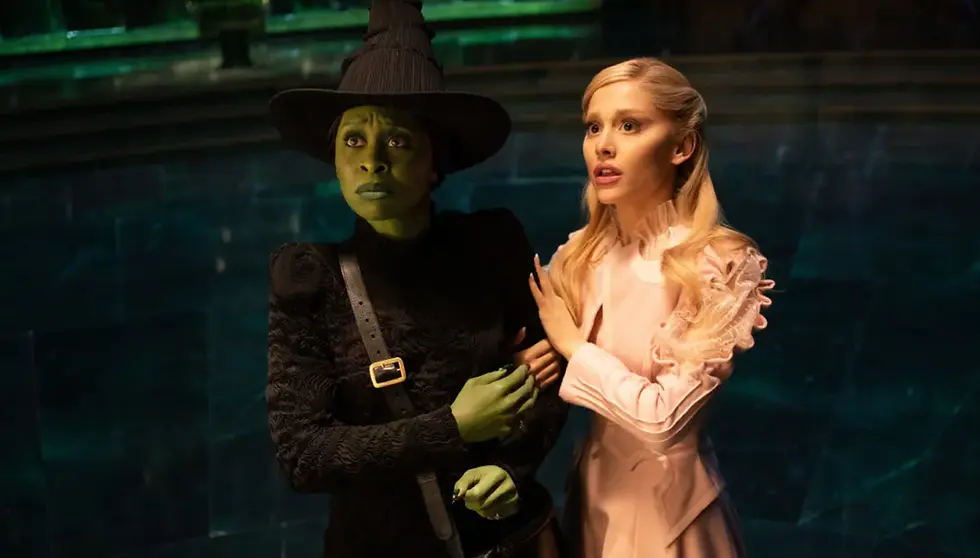The Sound of Music - Chichester Festival Theatre
- comaweng
- Jul 17, 2023
- 3 min read

It’s possible that I missed it, of course, but I didn’t see any ‘trigger warnings’ in the programme for Chichester Festival Theatre’s production of The Sound of Music, and so it comes as no surprise that certain British tabloid newspapers have yet again created drama where there literally isn’t any. Granted, it’s not very pleasant to see at least half a dozen Nazi giant flags on stage, on display to depict the Salzburg Festival in 1938 (the actual one had a prominent conductor resign, and others who were scheduled to perform had to leave post-Anschluss Austria on account of their Jewish heritage) – and there was at least one “Oof!” at the performance I attended from a member of the audience, who seemed to take umbrage at something one of the children said.
By contemporary standards, even the naughtiest of Captain Georg von Trapp (Edward Harrison) is really quite pleasant. And to say they don’t write shows like this one anymore is a two-edged sword – on one hand, songs like ‘My Favorite Things’ and ‘Climb Ev’ry Mountain’ are sublime and incomparable, on the other, it’s not the fastest of narratives, and with nine reprises (according to the show’s programme) it can get a tad too repetitive, even by musical theatre standards.
There will always be a part of me that will associate ‘Edelweiss’ with going to the toilet, because when I was a child the film version of The Sound of Music was on over the festive period. As it was on the BBC (One or Two, I can’t recall), there were no commercial breaks, but the film went on for so long that I either couldn’t or didn’t want to hold on until the end, so ran off to empty a bucket, so to speak. But this was another unforgettable ‘Edelweiss’ moment, because Harrison’s singing voice sounded like a cross between Edith Piaf and… a sheep. The vibrato is just so strong, and I’m no vocal coach, but surely something could be done about that.
Matt Samer conducts a fourteen-piece orchestra, which sometimes manages to sound like one double that size (and frankly, sometimes doesn’t). There’s an on-stage guitar, but nobody actually plays it, even if Gina Beck’s Maria does a good job making it look like she does (I managed to bag a front row seat, although someone tried to tell me I was in her seat almost immediately after I sat down, interestingly before actually reading what was printed on her ticket).
I was a miracle, in a way, to have made it there and back without problems – the Goodwood Festival of Speed events on the day I was booked to go to Chichester were cancelled due to adverse weather. The train from London Victoria was only five minutes late on arrival (not bad going for Southern Railway, as its regular passengers will know), and the high winds that might have led to fallen trees and therefore blocked railway lines weren’t as bad as predicted. Still, it was a challenge to keep sandwiches and other light bites on the tables just outside the theatre (the ones inside were, as ever, already occupied).

There was at least one person in the audience dressed as a nun, which wouldn’t be unusual for a London production (it wouldn’t surprise me if this one transferred, given the show’s continuing popularity), although it is the first time that I’ve seen cosplay at Chichester. Of course, nobody turned up dressed as a Nazi official. In London, people coming as ‘brown paper packages tied up with string’ would only be expected.
Janis Kelly’s The Mother Abbess was, vocally, by far the standout, and I’d forgotten how positively the Church comes across in this show – with Maria and other ‘postulants’ encouraged to face the world, literally and metaphorically, and not use the abbey as a place to hide away from it. The set (Robert Jones) changes a little clunkily by Chichester (and thus West End) standards, and if you’re left wondering why there are ‘only’ six children taking their bows at the same time at curtain call, the eldest, Liesl, is played by an adult, Lauren Conroy, who bows with other members of the adult ensemble. A pleasant enough experience, it was a nice trip down memory lane for people in the audience old enough to remember the 1961 West End production and/or the release of the motion picture in 1965. It will disappoint anyone wanting a different take on a classic story. But then there’s something timeless about The Sound of Music, a ‘drop of golden sun’ in a big, bad world.
Three stars





Comments